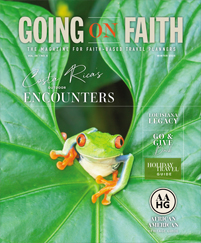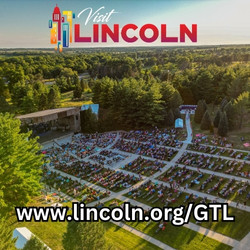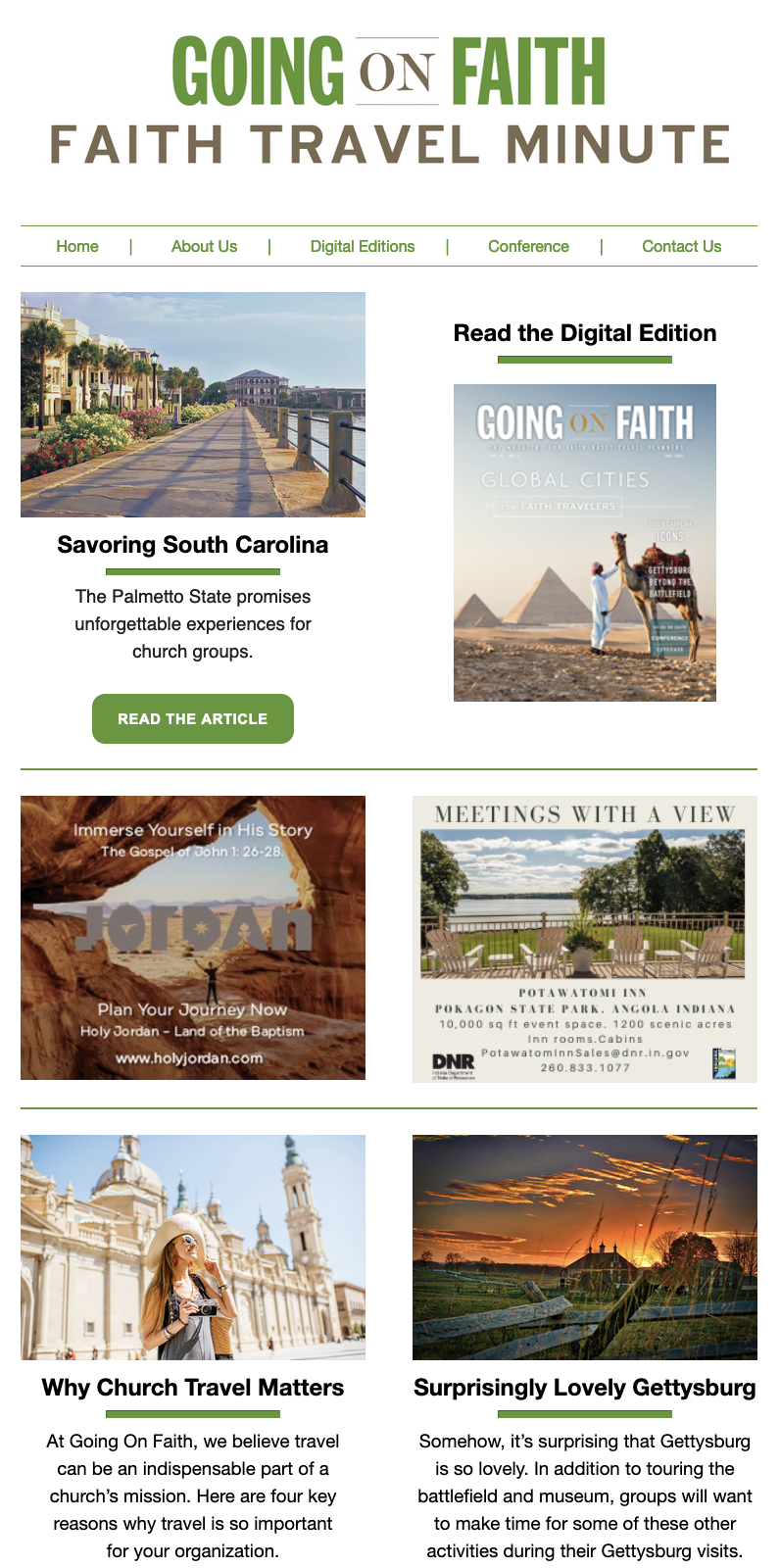Fast Facts About Richard Pickering
Name: Richard Pickering
Title: Deputy Executive Director and Senior Historian
Company: Plimoth Patuxet Museums
Hometown: Braintree, Massachusetts
Favorite Bible Verse: Psalm 121:1-2 KJV — “I will lift up mine eyes unto the hills, from whence cometh my help. My help cometh from the Lord, which made heaven and earth.”
Favorite Destination: “Florence, the Uffizi Gallery. ‘The Adoration of the Magi, The Circumcision, and The Ascension of Christ’ triptych by Andrea Mantegna is breathtaking in composition, color and characterization. And it is always a joy watching visitors’ first reactions to Botticelli’s ‘Birth of Venus’ or ‘Primavera.’ Count how many times you hear ‘It’s Venus on the Half Shell!’ as you stand in front of the canvas.”
Hobbies: Pickering enjoys daily early morning writing sessions at Dunkin’ Donuts, as well as MGM movies from the Golden Age of Hollywood.
Some people are blessed to find their calling early in life. Richard Pickering is one of them.
Pickering discovered his passion for history when he was just 6 years old on a visit to the Adams National Historical Park, featuring the home where former Presidents John Adams and John Quincy Adams lived. His curiosity piqued the interest of the museum’s docent, a Miss Harris, who had been the last personal secretary to Brooks Adams, John Adams’ great-grandson. She took him through the house on a personal tour, giving him unparalleled access to things like the family’s christening gown, the Mende Bible presented to John Quincy Adams by the prisoners of La Amistad, and the chair where John Adams spoke his last words, “Thomas Jefferson still survives,” on July 4, 1826.
That encounter set Pickering on a career path that brought him to the Plimoth Patuxet Museums in Plymouth, Massachusetts.
“My parents and Miss Harris are how I ended up doing this work, and there are times that you can see a child just light up and you realize, ‘Oh, wow, I’m his Miss Harris,’” Pickering said. “We’re here to capture the imagination, to connect people of all ages with the past and understand that we’re on a continuum of history. We have received the world from others as we are making the world others will receive. So how do you help people understand they stand in a parade of time where we’re all connected to each other?”
Pickering visited the Plimoth Patuxet Museums many times in his youth, starting with a requisite third-grade field trip from his home in nearby Braintree, Massachusetts. When he was 23, a friend convinced him to interview for a job as a pilgrim historical reenactor. He then went to graduate school at the College of William and Mary, came back and worked in roles as a research associate, director of special projects and director of education. He then attended the University of Connecticut for more graduate work and returned again in 2009 as the museum’s deputy executive director.
“I’ve been with this museum on and off for the past 40 years,” he said.
Faith has played a role in Pickering’s work at the Plimoth Patuxet Museum since the beginning. Before his first interview at the museum, he overheard some of the other reenactors chatting and was inspired, instantly knowing what he could bring to the program.
“One of them said, ‘Do you ever talk about religion with our guests?’ and the uniform response was, ‘No, that’s terrifying,’” said Pickering. “I thought, ‘Oh, now I know what I can contribute,’ because their staff are unfamiliar with or frightened to talk about one of the key motivations that brought the pilgrims to New England.”
Pickering had been a Sunday school teacher since he was about 15. His own father was raised in a military family that attended many different churches according to where they were based at the time. Pickering describes his own religious education as ecumenical — his parents encouraged their children to attend services at many different churches to form their own opinions.
“They wanted us to know about the faith experience and to be informed about our own beliefs and to understand the beliefs of others,” he said. “They didn’t want us living in ignorance of other people’s traditions. So I knew how I could help people understand the experience of the Pilgrims and talk about it from an informed position.”
Today, Pickering helps visitors understand that the contemporary Christian experience is different from the 17th century Christian experience, largely because of advancements in the sciences and archaeological discoveries that have allowed for more modern interpretations of the Bible. The Plimoth Patuxet Museum is preparing to release 14 short films funded by the Lilly Endowment that explore different aspects of the pilgrims’ experience including part of their worship practices.
“Our faith-based travelers are interested in this because their group can have deeper conversations,” he said. “It all depends on the individual and the quality of their inner life. Some people are deeply affected by a visit to the museum, and for others, it’s the beginning of exploring the role of religion in American history.”
Travel Tips
1. Sip your morning coffee quietly. Often, the overheard conversation points you in the direction of local favorites for dining, shopping or the performing arts. You might also learn what to avoid!
2. Some people say, “Stop and smell the roses.” I say, “Stop and try the local chocolates.”
3. Truly see your servers, thank your servers and tip your servers.










